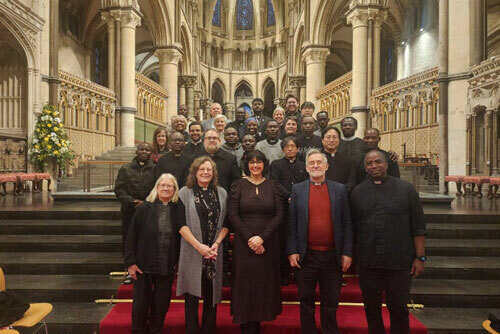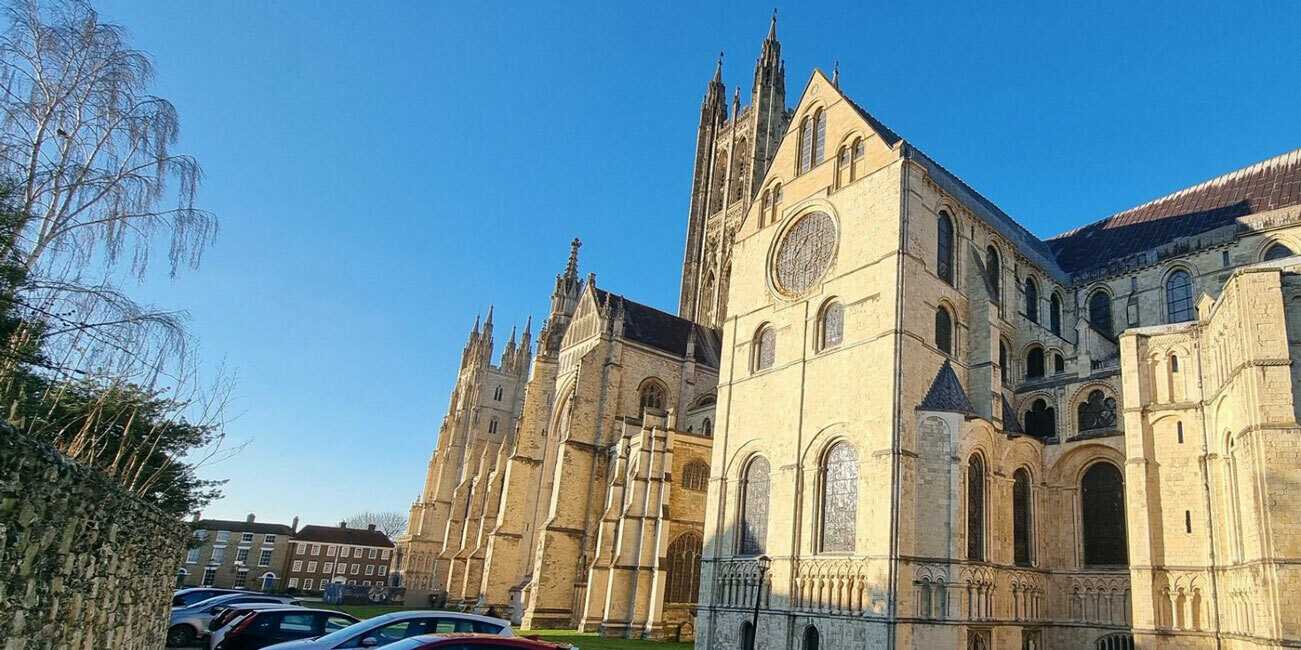
Pilgrimage and Formation
at the Heart of Anglicanism
Reflections on the Canterbury Cathedral
New Clergy/Seminarians’ Course (1 to 11 February 2025)
The Revd Dr Noah Mbano, Priest-in-Charge, Parish of Serpentine-Jarrahdale
When I was first invited to attend the New Clergy and Seminarians’ Pilgrimage at Canterbury Cathedral, I did not hesitate. Having heard it described as ‘the experience of a lifetime’ by those who had attended before, I had some idea of what to expect, but even then, the experience blew my mind.
Recognising this was likely my only opportunity to take part in such a programme, I stepped out in faith. Little did I know that this journey would become one of the most spiritually formative and theologically grounding experiences of my ordained life.
Looking back, I now understand why Canterbury has remained central to the identity of the Anglican Communion—not merely as a historic place, but as a living symbol of unity, rootedness, and holy encounter. To walk in that sacred space is not merely to visit a cathedral, but to step into the heartbeat of our ecclesial story. In reflecting on the pilgrimage, I offer my thoughts under three themes that capture its transformative significance: Canterbury as sacred place; theological formation through communal learning; and relationships across the Communion.
1. Canterbury as Sacred Ground and Theological Symbol
To stand within the walls of Canterbury Cathedral is to stand on ground soaked in centuries of prayer, martyrdom, liturgy, and faithful witness. The building itself preaches - a theology carved in stone, coloured in glass, and echoed in chant. Being there felt like coming home. Not in the sense of familiarity, but in the deeper, spiritual sense of re-encountering my roots as an Anglican priest.
Each worship service—whether Evensong in the Quire, Taizé in the Crypt, the Holy Eucharist, or the simple stillness of candlelit prayer - was a deep immersion into the presence of God mediated through tradition, beauty, and community. The sheer physicality of the space - the weight of ancient doors, the worn stone benches, the tombs, and the soaring arches - spoke volumes of the generations who have prayed, wept, and celebrated in that space.
To sit where monks once prayed, to touch the very door Thomas Becket passed through before his martyrdom, and to pray at St Augustine’s Cross, brought history into my inner self and faith into sharper focus. These were not just sites to be seen—they were sacraments of memory, renewing my sense of vocation and deepening my reverence for the Church I serve.
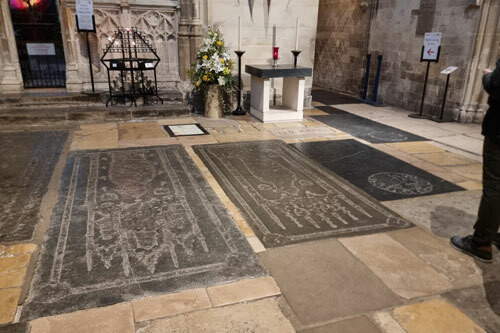 |
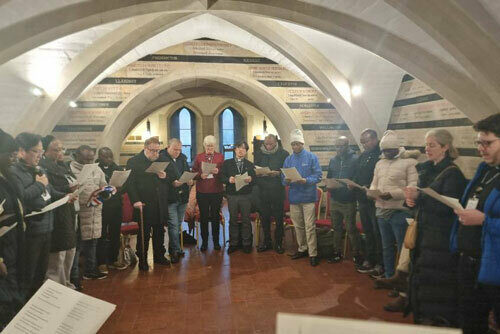
2. Theological Formation Through Community Learning
The days were rich with learning - morning to evening filled with lectures, reflections, and site visits led by respected theologians, church leaders, and practitioners from across the Communion. Sessions on discipleship, Anglican identity, mission and evangelism, climate justice, canon law, and spirituality in community gave theological depth to our shared Anglican calling.
Particularly memorable were the visits to the Anglican Communion Office and Westminster Abbey. At the latter I felt the quiet pull of a life wholly devoted to prayer, and I was reminded that all ministry begins and ends in communion with God. At the Communion Office, I glimpsed the vast scope of Anglican witness and the remarkable, often unseen, work of nurturing global unity. These experiences inspired me to see my ministry not just in local terms, but in communion with the Catholic Church.
If anything, this experience reminded us that the Church is not merely formed around doctrine or polity but around persons - Christ first and foremost, but also the historical figures and communities who have carried his light. That insight deepened my sense of what it means to belong - not just to a parish or diocese, but to a living tradition that stretches through time and space.
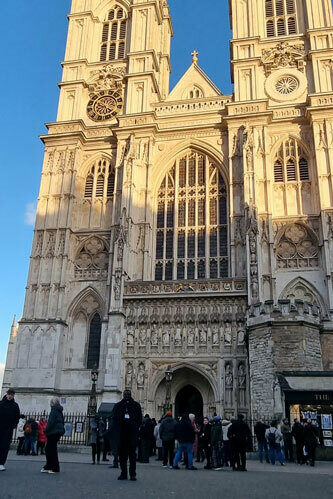
3. Communion and Companionship: The Gift of Global Fellowship
Perhaps the greatest treasure of the course was the fellowship among participants. We came from different continents, cultures, and ecclesial contexts, yet were bound by a common calling and a shared liturgical inheritance.
Over meals, in prayer, during learning sessions, and on walks through the cathedral and surrounding sites, we shared stories of joy and struggle, of flourishing and pain. I was humbled and inspired by the courage of colleagues serving in difficult, even dangerous, contexts. It reminded me that the Church is larger than my experience—and that faithfulness takes many forms.
We laughed, we prayed, we debated, and we listened. And in doing so, we became companions on the way. These friendships, born in holy ground, continue to nourish me with encouragement, insight, and perspective.
In conclusion, the Canterbury experience remains a sacred encounter that continues to shape me. I found it to be far more than an academic or professional development programme. It was a pilgrimage, a retreat, a renewal. It reminded me why I answered the call to priesthood in the first place - to serve the Church, not as a system or structure, but as the Body of Christ shaped by history and culture, bound by love, and always being made new by the Spirit. To anyone discerning their vocation more deeply, to clergy seeking renewal, or to anyone who wonders whether God still speaks through ancient stones and modern friendships - I say yes. But more than that, I say: be ready. Because Christ has much more to say to us - if only we are willing to listen, and if we are ready to receive.
